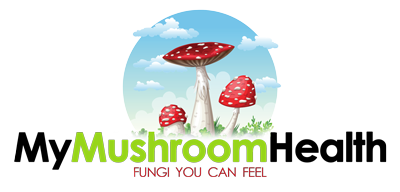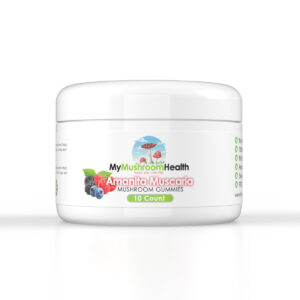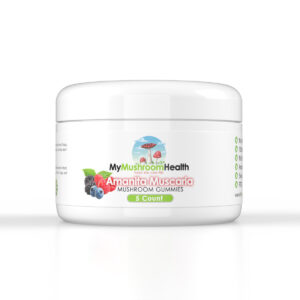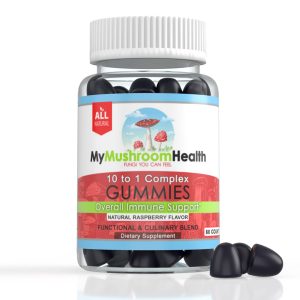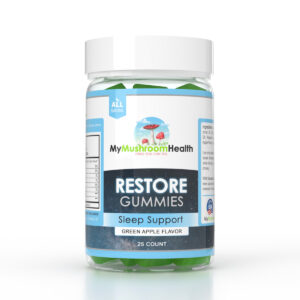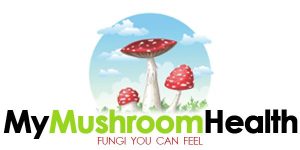Culinary Mushrooms
Culinary mushrooms such as Oyster, Shiitake, Maitake and Portobello have beneficial properties as well as the lesser know medicinal mushrooms so make sure you incorporate these wonderful foods into your weekly consumption. Remember, just like with Vitamin A & D, you don’t want to overdue the consumption of these fungi. A moderate balance of your intake is all you need. Like all mushrooms, culinary mushrooms are not fruits or vegetables. They are Fungi and are unique kind of living things. Fungi are one of the oldest types of life on Earth, with the oldest Fungi appearing around a billion years ago. What we call mushrooms are the fleshy, spore-producing part of the fungus referred to as the fruiting body. Study links can be found in description area and on our site.
History of Culinary Mushrooms
There are many non-psychotropic mushroom compounds that have been used in healing for thousands of years. Mushrooms contain Mycelium (the active compound produced “prior” to the pinhead) and several other molecules, including triterpenoids, polysaccharides and peptidoglycans, that may be responsible for its health effects. Culinary mushrooms can be found in grocery stores and farmers markets. As mushroom popularity grows, it is important not to hunt for them outside without knowing what species are poisonous.
Types of Culinary Mushrooms
Maitake
Maitake is a culinary and medicinal mushroom that has shown anti-cancer activity on breast cancer, melanoma, and hepatoma cells in animal studies. Proteoglucan, a component of maitake, has been associated with the immune-stimulating effects of the mushroom. In mouse models, proteoglucan has been shown to decrease mammary tumor cell behavior. In-vitro and animal studies, polysaccharides found in maitake have been shown to exert anti-viral activity against hepatitis B and human immunodeficiency virus (HIV).
Oyster
Oyster mushrooms are a genus of fungi that include several species, such as Pleurotus ostreatus and Pleurotus florida. In vitro research has found that the polysaccharides present in P. ostreatus mushrooms may activate NK cells against lung and breast cancer cells. Additionally, an extract of P. florida, which contains a number of active components, including phenolics, flavonoids, and polysaccharides, was shown to have anti-inflammatory and analgesic effects in animal models.
Shiitake
Shiitake mushrooms have been traditionally used to treat conditions such as the common cold. A four-week clinical trial suggests that shiitake intake was associated with favorable changes in secretion patterns of various immune compounds. These changes may indicate an improvement in gut immunity and an anti-inflammatory response. As with many other mushroom varieties, shiitake may have anticancer effects. Lentinan, which is a glucan derived from shiitake, is currently used as a complementary treatment for tumors, particularly in China and Japan.
Portabello
The larger size of the cap makes these easy to spot. For anyone with a serious medical condition or immune compromise scenario, you can get all the healing attributes of mushrooms right from your grocery store. These culinary mushrooms should be added to your diet on a weekly basis and can have many health benefits. Like all mushrooms, portobello mushrooms are low in fat and calories and 100 grams of raw mushrooms have no fat and only 22 calories. Nutrients: Portobella mushrooms taste meaty and savory, with a quality that makes them a good substitute for foods higher in fat and calories like meat and cheese. Cheese is HIGHLY inflammatory, avoid if possible. Portobello are a good source of many nutrients, including: B vitamins, Phosphorus, Selenium, Copper, and Potassium. Mushrooms are the only known non-animal source of vitamin D, but many commercial mushrooms are grown in dark indoor spaces because they do not photosynthesize, and do not contain significant amounts of vitamin D. Some commercial mushroom growers expose their mushrooms to ultraviolet (UV) light to increase their vitamin D content.
Culinary Mushroom Mental Benefits
Culinary Mushrooms Mental Benefits. Eating mushrooms may have protective effects on the brains of older adults and may reduce the risk of mild cognitive impairment (MCI). In a 2019 study of Chinese seniors aged 60 and older, people who ate two or more servings of mushrooms a week had a 52% reduction in the risk of developing MCI after controlling for other factors. Culinary Mushrooms Intestinal Health Benefits. Polysaccharides act as a food for beneficial gut bacteria, helping those beneficial strains grow and survive. Since 70% of the immune system is in the gut, eating gut-healthy foods like portabello mushrooms may improve immune function.
MEDICAL STUDY LINKS FOUND HERE
